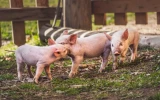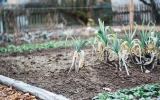How Much Land Do You Need For a Smallholding (UK)?
Smallholding remains the most common form of livelihood around the world. With their homegrown produce and way of achieving self-sufficiency, smallholdings have been popular in the UK. If you live in the UK and want to start a smallholding, this article will tell you how much land you will need.
You can achieve self-sufficient smallholdings in the UK on either 2, 3, 4, or even 5 acres of land. Even a 1-acre plot of land or a quarter acre can be a profitable smallholding if you can maximize your limited space. If you plan to keep bigger livestock in your smallholding, at least 10 acres are required.
Knowing how much land you’ll need depends entirely on what you plan to keep. Below, we’ll share some tips on how you can maximize your land and which land size is ideal for beginner smallholders, so keep reading.
Summary
- You can make a profitable smallholding out of an acre of land.
- If you plan to build an all-out farm with crops, livestock, bees, and trees around, 2–4 acres of land will be enough.
- If your goal is to be fully self-sufficient, a 5-acre plot is the best size to start with.
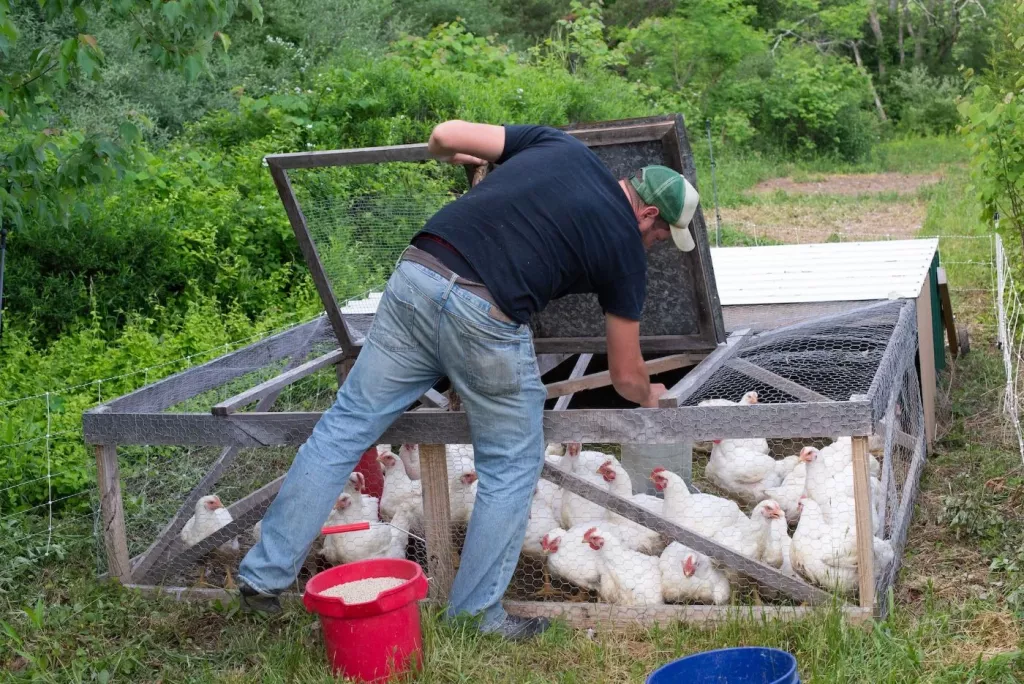
On this page:
Land Sizes of Self-Sufficient Smallholdings in the UK
Creating sustainable livelihoods on small pieces of land is a lifelong dream for many. Whether your goal is to produce your own homegrown crops, achieve self-sufficiency to be able to go off-grid, or earn some side income, there are many reasons to start a smallholding in the UK.
The sizes of smallholdings in the UK vary anywhere between 1 acre and 50 acres of land. Crop planting, livestock raising, fish farming, mushroom cultivation, and beekeeping are some of the farming activities that qualify as a smallholding in the UK.
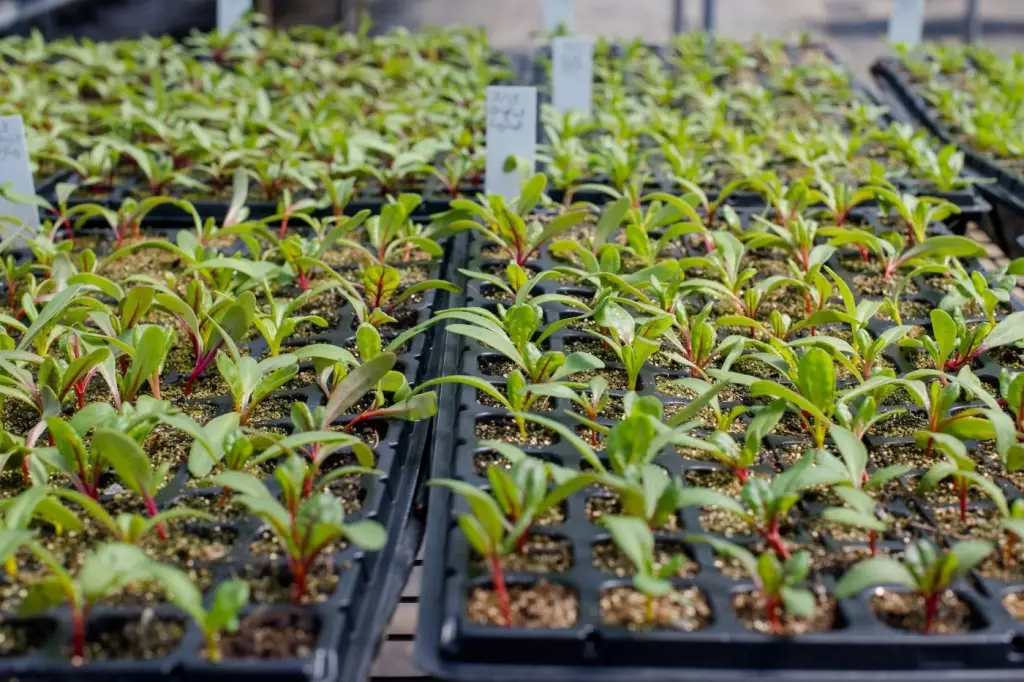
The amount of land you’ll need will vary depending on what you plan to do with it. However, if your goal is to have a self-sufficient smallholding, the minimum size of the acreage is at least five acres.
In reality, five acres are bigger than you think if you are a smallholder who will single-handedly manage a smallholding. Acreages smaller than five acres are said to be even more productive because of how the land is used for multiple purposes rather than a large farm of single, arable crops.
A 1-acre smallholding can be sustainable and profitable
A 1-acre plot of land can be very productive, especially if you focus on doing one or two things from these choices below:
- Growing organic vegetables and fruits
- Raising livestock
- Fish farming
- Beekeeping
- Cultivating mushrooms
When it comes to raising livestock, a few good choices for beginners are mostly poultry birds like ducks, chickens, and quail. They are best to raise on small acreage and require just a few square feet. Some also decide to keep small animals like bees and rabbits.
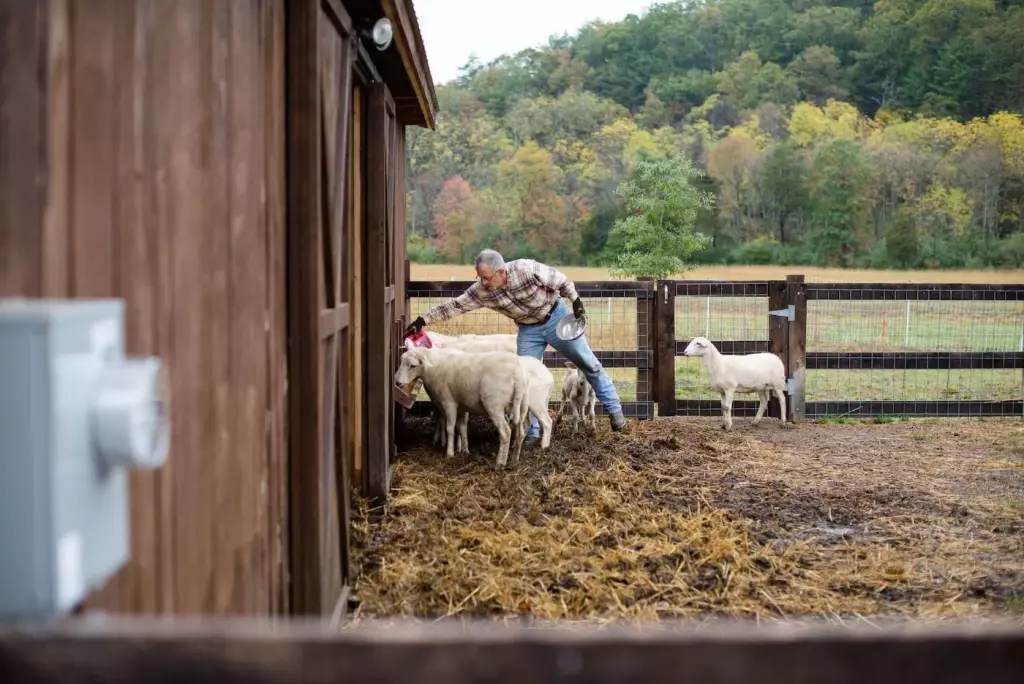
Just note, however, that while bees can be raised on an acre of land, your farm cannot be sufficient with just them alone.
To know what other farming ideas can be done to make 1-acre land profitable, read here.
You can successfully farm on 2 acres of land
If you have 2 acres of land, you have more options on how to use it to become more sustainable and profitable. If you want to be successful at farming on a 2-acre plot, there are a few techniques that you must apply to maximize the full potential of your small plot:
- Choosing the right crop suitable for the climate and the soil type.
- Practicing crop rotation
- Applying soil conversion techniques to reduce erosion
- Planting cover crops
- Choosing the most efficient irrigation system suited to your 2-acre land
- Using raised beds to maximize space
Choosing the right crops based on climate is the first and most important technique to consider when farming crops. This is because factors such as sunlight, humidity, temperature, and soil nutrients differ in various climates, and these factors affect the growth of crops, therefore affecting your success in farming too.
Read this article to know which crops are the most profitable per acre for different climates.
You can build a homestead on 3 acres of land
If you have an extra acre of land, you can use it to build a self-sufficient homestead. Here are a few things you can do with a homestead on 3 acres of land:
- Allot a large space for a garden to grow cash crops
- Raise poultry like chickens or turkeys
- Raise livestock such as pigs or goats
- Establish one or two beehives for pollination purposes
- Build a greenhouse to plant crops all year-round
Even though 3 acres of land is big enough to hold a large garden, a few beehives, and some livestock animals, there are of course limitations.
A 3-acre plot of land cannot be turned into a full-on dairy farm since animals like cows will need 1 acre per individual. It also cannot accommodate tree planting since the trees may just overshadow the crops.
A 4-acre land can be used for more farming activities
Having a larger space gives you more freedom to do mixed farming activities. To maximize the yield from your 4-acre land, here are a few things you can do to not waste any space:
- Grow vegetable crops in raised beds
- Explore vertical gardening techniques
- Plant space-efficient fruit trees and bushes
- Try container gardening techniques with crops like basil and peas
- Integrate small livestock
- Make space for rainwater collector tanks
While there are plenty more things you can do on 4 acres of land, raising a full herd of cows and other livestock is not possible. Traditional farm set-ups where your animals are spaced apart with your crops are also not possible on just a 4-acre lot.
The minimum land size requirement to be fully self-sufficient is 5 acres
The larger the land, the more effort it will take to make a 5-acre smallholding fully self-sufficient and profitable with every square foot.
You will need to be creative with your farm plan and be ultimately hardworking. A well-executed farm plan for a 5-acre smallholding involves:
- Allotting half of the 5-acre land for two small market garden
- Allocating 1 and a quarter acre for cover crops
- Raising livestock and poultry on a 1-and-a-quarter acre
- Set up a 4,000 square feet hoop house
- Establish a small apiary
- Plant fruit-bearing trees on the side
Since 5 acres of land are large, it can accommodate at least one or two cows, but you still cannot keep a whole herd of them for a total dairy farm.
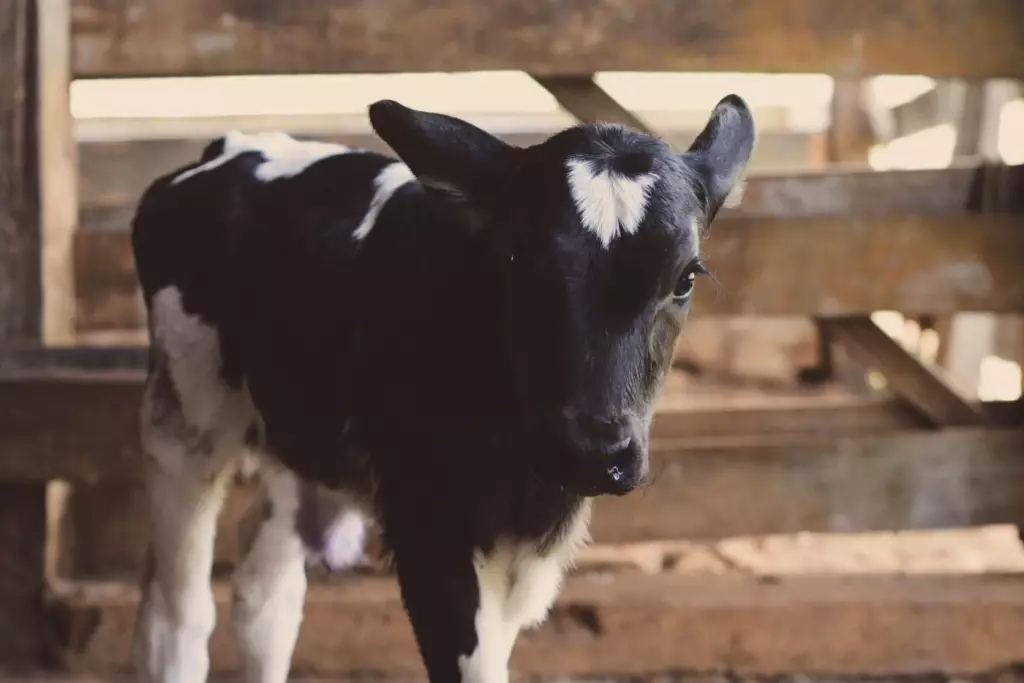
As we can see, five acres is a livable and sustainable size for beginning farmers. This may be the best size for beginners if you plan to provide food for your own family’s consumption as well as make a huge side income.
Note, however, that building a smallholding is still possible and profitable even on smaller plot sizes than 5 acres.

